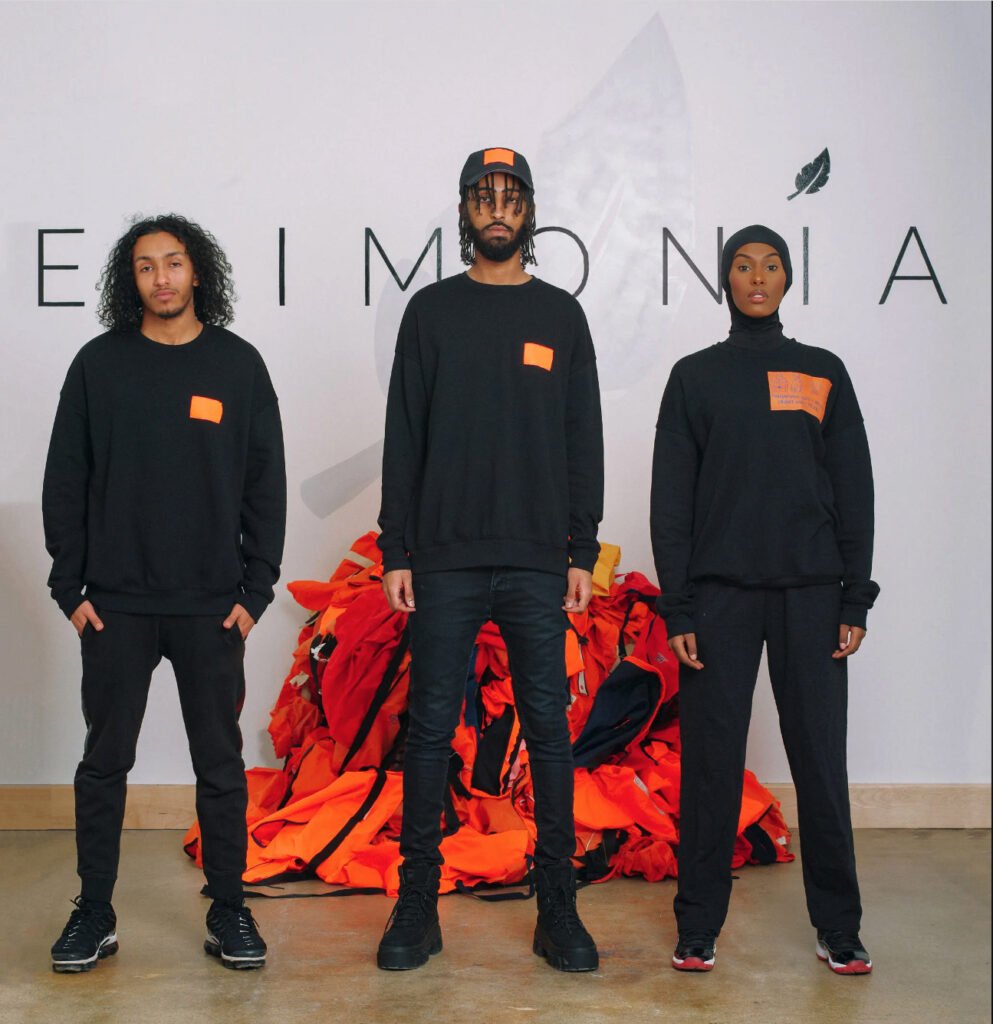Mohamed Malim, a former Somali refugee who arrived in the United States at a very young age, created the fashion label Epimonia to break negative stereotypes about refugees and support them at all levels. Based in Minnesota, this startup collects life jackets worn by refugees to transform them into ready-to-wear, accessories and jewelry.

This is a strong signal from Mohamed Malim with his fashion brand Epimonia, which in Greek translates as ‘perseverance’, created to put the spotlight on the millions of refugees forced to flee their country around the world. In addition to the financial and moral support it offers, the label wants people to talk about the plight of these exiled people, but above all to share not clichés, but inspiring success stories. The clothing and accessories that Epimonia offers are also designed by seamstresses who have fled their country themselves.
An example of success
Mohamed Malim himself is a former Somali refugee, born in a camp in Kenya, who arrived in the United States nearly 20 years ago after fleeing the civil war in Somalia. Now founder and creative director of the Epimonia brand, he founded his start-up to give as many refugees as possible the same support that he and his family could benefit from when they arrived in the United States. And all while using the ultimate witness to this escape to a foreign land, the life jacket.
Epimonia collects life jackets worn by refugees when crossing the Mediterranean to the island of Lesvos, Greece, and then left on the beach to make hoodies, T-shirts, parkas, denim jackets, tote bags, caps and bracelets. Each piece in the collection features an orange rectangle reminiscent of life jackets, with or without a message. Some clothing reads “Refugees Welcome”, “Refugees United”, or “Citizens of the World, We are Refugees”.
Clean beaches, support refugees
With this initiative, Epimonia is working to clean the beaches of thousands of abandoned life jackets, preserving the health of the planet, while supporting refugees in their quest for a better life. This is to help them with employment and housing, as well as getting scholarships or covering the cost of citizenship applications.
“We are determined to break the negative stereotypes about refugees often seen in the media. We use our platform to collaborate and collaborate with refugee organizations, sports teams, artists and more to share inspiring refugee stories. Our goal is to raise awareness and uplift the global refugee community,” reads the brand’s official website.
Through its EpimoniaLab, which seeks new ways to recycle life jackets, the label has already collaborated with many structures and personalities, including the Minnesota United Football Club or the artist Denimani.
According to the UN Refugee Agency, by the end of 2021, nearly 90 million people around the world will be forced to flee their homes, including more than 27 million refugees. More than half of them were under the age of 18. A situation exacerbated by the war in Ukraine. The international organization now estimates that 4 million people could eventually flee the country.
Since 2018, Epimonia has recycled more than 500 life jackets, enabling it to return $45,000 to refugees in the form of donations.
ETX Daily Up